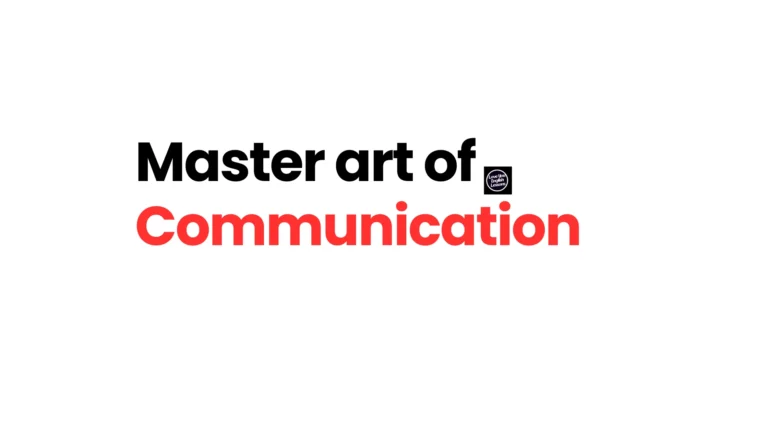Professional Improvement Goals: Boost Your Career
Sharing is caring!
Setting goals for professional growth is important for anyone wanting to move forward in their career.
These goals can help you learn new skills, improve your existing ones, and create chances for advancement.
In this post, I will discuss what professional growth goals are, why they matter, and how to create and reach them.
What Are Professional Improvement Goals?
Professional improvement goals are targets you create to boost your skills, knowledge, or performance at work.
These goals aim to help you advance and evolve in your job or area of expertise.
They can be for the near future or further down the line and can cover different parts of your career, like:
- Skill Development: Learning new skills or improving existing ones.
- Knowledge Expansion: Gaining more knowledge about your industry or job.
- Performance Improvement: Increasing your effectiveness and efficiency in your role.
- Career Advancement: Preparing for a promotion or new job opportunities.
- Personal Growth: Enhancing your personal qualities that impact your professional life.
Why Are Professional Improvement Goals Important?
Setting professional improvement goals is important for several reasons:
Career Growth: Goals help you advance in your career by pushing you to acquire new skills and knowledge.
Motivation: Having clear goals keeps you motivated and focused on what you want to achieve.
Performance Enhancement: Improvement goals can help you become better at your job, which can lead to better performance and recognition.
Job Satisfaction: Achieving your goals can lead to increased job satisfaction and a sense of accomplishment.
Adaptability: In a constantly changing job market, improvement goals help you stay relevant and adaptable to new trends and technologies.
How to Set Effective Professional Improvement Goals
Setting effective professional improvement goals involves several key steps:
1. Self-Assessment
Before setting goals, it’s essential to assess your current skills, strengths, and areas for improvement. Reflect on:
- What skills do you currently have?
- What skills do you need to develop?
- What are your career aspirations?
- What feedback have you received from colleagues or supervisors?
2. Define Clear Goals
Your goals should be specific, measurable, achievable, relevant, and time-bound (SMART).
Here’s a breakdown:
- Specific: Clearly define what you want to achieve. Instead of saying “I want to improve my skills,” say “I want to learn advanced Excel functions.”
- Measurable: Determine how you will measure your progress. For example, “I will complete a course on advanced Excel functions and apply them in my daily work.”
- Achievable: Set realistic goals that you can accomplish with the resources and time you have.
- Relevant: Ensure your goals align with your career objectives and current job responsibilities.
- Time-bound: Set a deadline for achieving your goals. For example, “I will complete this Excel course within three months.”
3. Create an Action Plan
An action plan outlines the steps you need to take to achieve your goals.
It includes:
- Resources Needed: Identify what resources (courses, books, mentors) you need.
- Timeline: Set a timeline for each step of your plan.
- Milestones: Establish milestones to track your progress.
4. Seek Feedback
Regular feedback from colleagues, supervisors, or mentors can provide valuable insights into your progress. Use this feedback to adjust your goals and action plan as needed.
5. Monitor Progress
Track your progress regularly to ensure you’re on the right path. Adjust your goals or action plan if necessary based on your progress and any changes in your career situation.
6. Celebrate Achievements
Celebrate your successes, no matter how small. Recognizing your achievements can keep you motivated and focused on your long-term goals.
Examples of Professional Improvement Goals
To give you a clearer idea, here are some examples of professional improvement goals:
- Skill Enhancement: “I will improve my public speaking skills by joining a local Toastmasters club and giving at least one speech per month.”
- Knowledge Expansion: “I will stay updated with industry trends by reading one relevant article per week and summarizing key points in a monthly report.”
- Performance Improvement: “I will enhance my time management skills by implementing a new productivity tool and evaluating its effectiveness after two months.”
- Career Advancement: “I will prepare for a promotion by completing a leadership training program and seeking additional responsibilities in my current role.”
- Personal Growth: “I will work on improving my emotional intelligence by reading two books on the subject and practicing mindfulness techniques daily.”
Overcoming Common Challenges
While setting professional improvement goals is beneficial, you might face some challenges.
Here are some common ones and how to overcome them:
1. Lack of Time
Balancing work and personal life can make it hard to focus on goals.
Overcome this by prioritizing your goals and allocating specific times in your schedule to work on them.
Even small, consistent efforts can lead to significant progress.
2. Fear of Failure
Fear of not achieving your goals can be discouraging.
To overcome this, break your goals into smaller, manageable steps and focus on incremental progress.
Remember, setbacks are a part of the learning process.
3. Lack of Motivation
Staying motivated can be challenging.
Set short-term milestones and reward yourself when you achieve them.
Keeping a journal to track your progress can also help maintain motivation.
4. Unclear Goals
Sometimes, goals might seem vague. Make sure your goals are specific and clear.
If you’re unsure, seek advice from mentors or colleagues to refine your goals.
Final thoughts
Making and reaching goals for your career is a great way to grow both professionally and personally.
If you follow the steps in this guide, you can set smart goals, make a plan to reach them, and tackle any challenges that come up.
Keep in mind that improving your career is a continuous journey, and each step you take helps you get closer to what you want to achieve.
Take some time to think about your career dreams, set specific and doable goals, and stay dedicated to your progress.
Your hard work will not only improve your skills but also make you happier in your job and help you succeed in your career.
Read more:
- How to Stay Connected With Teachers During Distance Learning
- Body Language Tips for Your Next Job Interview
- Interview Strategies for Introverts
- Career Break Guide: Definition, Reasons and Tips
Resources:
Sharing is caring!






